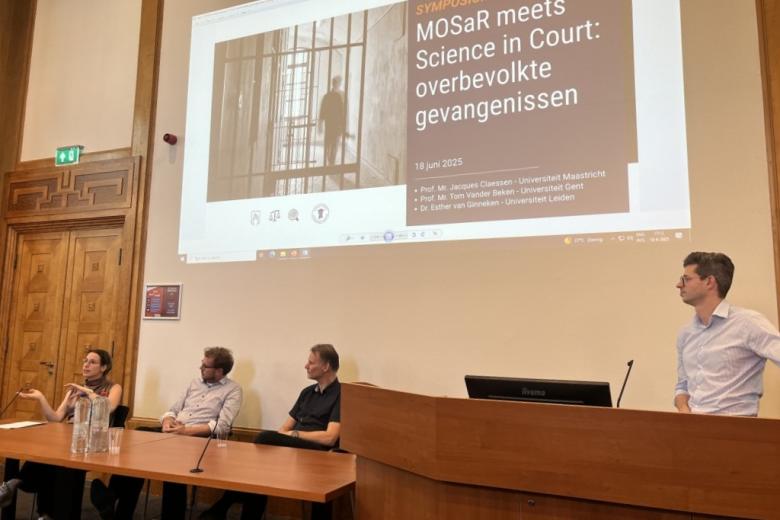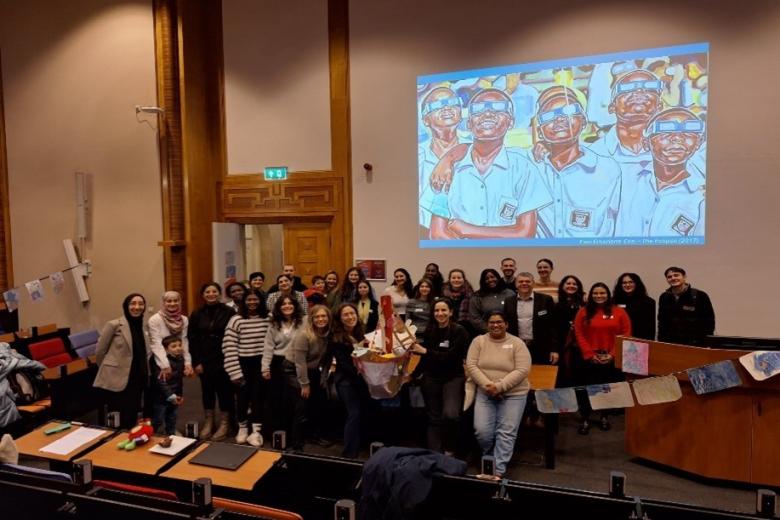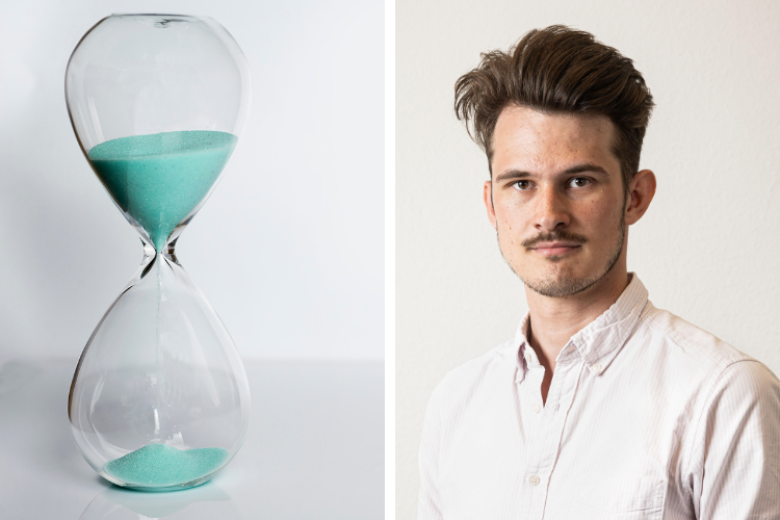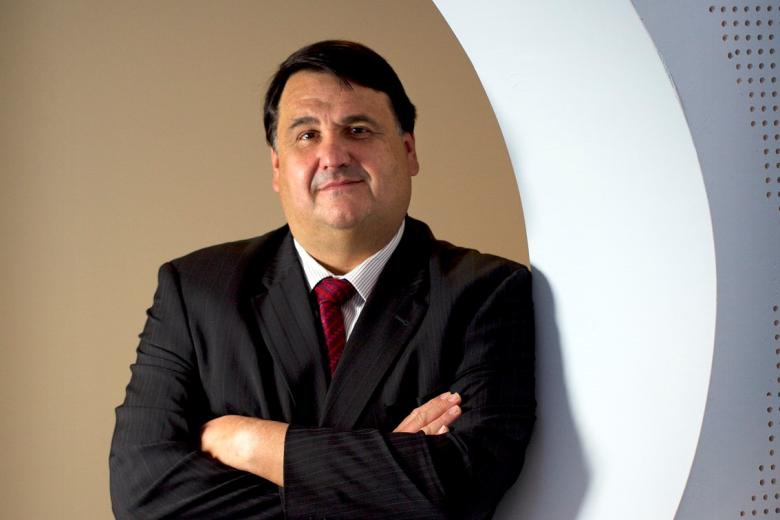Finding Refugee: Verhalen uit Nederland
Maastricht verzorgt de opvang van 600 vluchtelingen, in een kamp dat vroeger de eerste gevangenis was die werd gebouwd op basis van een nieuwe gevangeniswet, gericht op rehabilitatie... Deze blog is alleen in het Engels beschikbaar.
Maastricht, Netherlands is hosting 600 refugees, in a camp that used to be Netherlands first prison built on the basis of the Prisoners Act, focusing on rehabilitation. A grey building, located behind a tall brick wall with steel window frames. Inside the building the atmosphere is tense, the air clogged. Two little girls run towards me as I walk in, one of them try to hide behind me while the other runs around me holding a plastic cameleon. She tries to scare her friend with the toy. I wonder if they are aware of how illustrative this fear is to their lives. I walk further in to meet Nour.
Nour fled the Syrian war and is now living in the refugee camp. He has kindly agreed to meet to speak about his journey, and give me certain insights. “My parents are in Germany, they walked from Greece” Looking straight at me, he continues. “I am not from a poor family, I am sick of people feeling sorry for me just because I am a refugee” . He takes a break as if he is looking for words. ¨ I am not just a number¨.
Nour was the second best student in his class at University of Aleppo, the largest city in Syria. A place where an ongoing military confrontation is taking place between the Free Syrian Army, Islamic Front, People’s Defence Units and Sunni militants against the Syrian government, Hezbollah and Shiite militants since 2012.” There is nothing left in Aleppo” he explains when I ask if he misses his hometown. We pass the small prison dorms as we walk through the narrow hallway. “Families live in some of these rooms, several people in one room”. We take the elevator up to the top floor. When we reach the top I have trouble breathing. “We have asked to open these windows, but unfortunately we are not permitted to do so” Nour explains pointing towards the window frame in the dark hallway.
Nour has been in the Netherlands for over a year. “I am focusing on helping the Dutch people better understand who we refugees are as individuals”. This is needed, given that the Netherlands is expected to host 60, 000 refugees this year only. I wonder how many more people we can place in this prison. I insist on seeing one of the rooms. Nour welcomes me inside a double room where I meet another young boy from Aleppo. His name is Ali and he’s eating a falafel and hummus roll. He quickly insists on sharing his lunch, the Syrian hospitality. Two beds squeezed together, three chairs desperately crushed around a table. “My friends are no longer in Aleppo, I have new friends now. A new life”, he responds with a strong voice, when I ask if he is still in touch with his friends back home. I ask how old he is, and to my surprise younger than I thought. He says something in Arabic to Nour, they both crack up in loud laughter In Arabic what they said was “We’ve aged ten years in just one since the start of the Syrian War¨.
The European continent has decided to challenge the ISIS in the front lines over the past weeks, ever since the Paris attacks added to the chaos. The future of Schengen is very fragile, the Dutch is now considering minischengen zone to cut the refugee influx, where the cabinet is looking at the option of developing a smaller open border area made up of the Netherlands, Belgium, Luxembourg, Germany and Austria, the Telegraaf said last Wednesday. There is no doubt that the current Schengen border doesn’t work, but is this the solution? ISIS now ha control over a geographical area bigger than most European states.
Like any terrorist group their goal is to create fear, but also to set individuals and states against each other. According to Sylvia Kim they are succeeding ¨We are not fighting the root source of terrorism, the solution lies in respect for the rule of law and humanity¨. So far ISIS has incited more violence reaction, and xenophobic discrimination from the Europeans states. ¨ We have to prove that we have higher standards of morality and human value, and international law provide us the minimum standard of this¨ according to Theo Van Boven, Dutch jurist and co-founder of Maastricht Centre for Human Rights . He also emphasizes that human rights scholars need to do a better promote human rights mechanisms in the current humanitarian crisis. ¨Declaring war against our enemies by states taking matters into their own hands, and disregarding the principles of international law is not the solution.¨ How will the terrorist-like tactics help us overcome our enemies if we declare war in a place Ali and Nour called home? Scare more people away, force them to endanger their lives by coming to the European continent, where we potentially shelter them in old prisons.
We have a lot to learn from people like Nour and Ali. They don’t feel sorry for themselves, and move forward. Their rights, their mind and their hearts should not be imprisoned. Some of these freedoms are promised through International law, but most of it coded in our inner moral dictum, our humanity.
-
MOSaR meets Science in Court: overbevolkte gevangenissen
Op woensdag 18 juni organiseerden het Maastrichts Onderzoekscentrum voor Samenleving en Recht (MOSaR) en Maastricht Science in Court (MSIC) een gezamenlijk symposium over de overbevolkingscrisis in het Nederlandse en Belgische gevangeniswezen.

-
Children’s Rights Research op Universiteit Maastricht: een dag vol ontdekkingen en inspiratie
Voor de meeste kinderen in Nederland is 5 december een magische dag, waarop ze reikhalzend uitkijken naar de komst van Sinterklaas, die cadeautjes en vreugde in huis brengt. Dit jaar beperkten de festiviteiten zich niet tot de voordeur van kinderen. Op dezelfde dag organiseerde de Universiteit...

-
Nieuwsgierigheid, geduld en zelfcompassie
Tijdens mijn werk in de academische wereld heb ik veel mensen ontmoet die me zelfs tijdens hun bacheloropleiding vertelden dat ze echt een academische carrière wilden nastreven. Ik bewonder dat. En ik vond dat altijd intimiderend. Kan iemand écht zeker weten waar hij of zij terechtkomt, vooral als...

